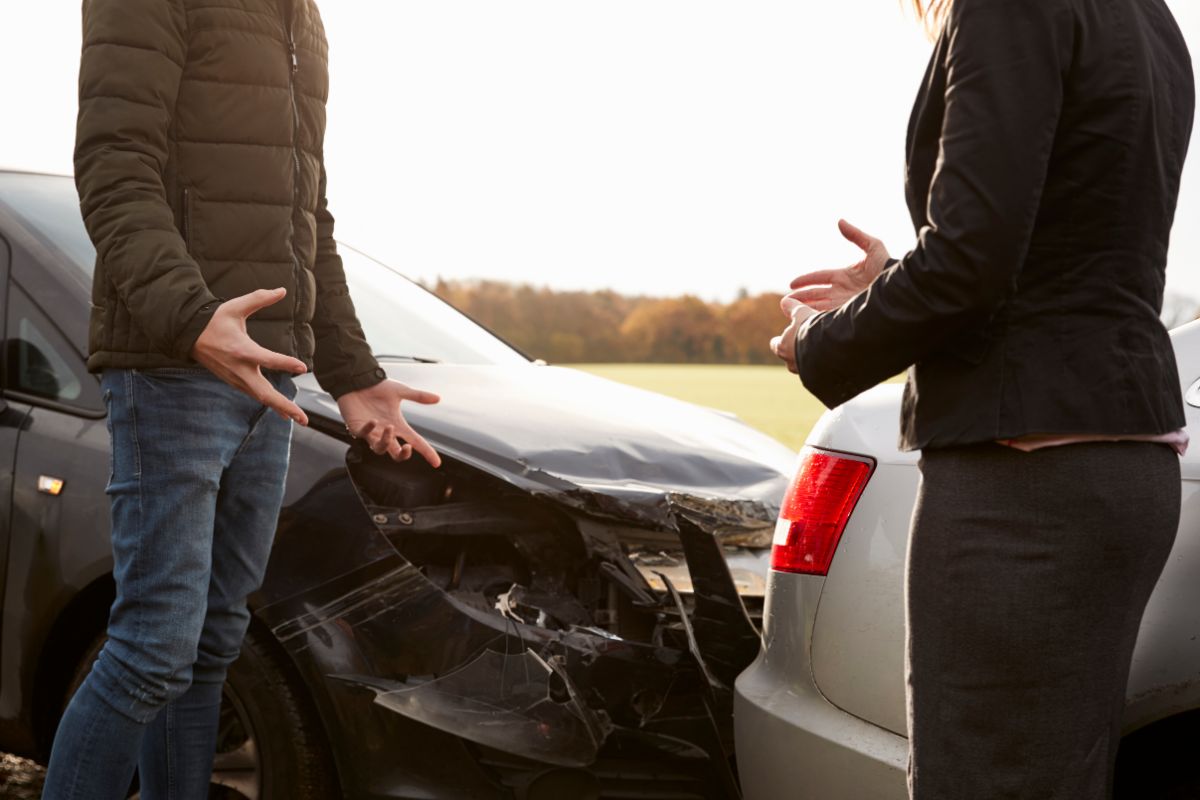Apologizing, Admitting Fault, or Accepting Blame Can Doom Your Injury Claims
When you have been in a car accident in Colorado Springs, whether a minor fender bender or a more serious accident with injuries, your first inclination may be to say, “I’m sorry,” – but is apologizing the same as admitting fault for the accident?
This is especially the case if you feel you may have been partially responsible because of careless driving. Unfortunately, in this case, apologizing and admitting fault in a car accident are often one and the same.
While you may think that saying “I’m sorry” is simply a polite or reflexive gesture in the immediate aftermath of a crash, an El Paso County judge or jury and car insurance companies will likely see the reflex as an acknowledgment that you caused the accident.
And they can and will try to use that apology against you if you seek compensation for your injuries and losses.
What You Meant By Your Apology Doesn’t Matter
You can picture the scene and the feeling: suddenly and unexpectedly, your car and another car collide. Confusion and adrenaline mix as you try to get your bearings. You get out of the car, survey the scene and the vehicles, and approach the other driver. Maybe you’re hurt, and the other driver comes up to you. Either way, in your flustered state, you blurt out, “I’m so sorry about this!”
You probably said this with the same intent with which you tell a friend, “I’m sorry,” after a loved one passes away or when they fall ill. You had nothing to do with those awful events, and they were in no way your fault; you’re just expressing your sympathy for their ordeal.
But in this scenario, saying that to the other driver implies fault, no matter what you meant. And when the driver tells their car insurance company that you said, “I’m sorry,” the insurer will make sure a judge or jury views apologizing the same as admitting fault.
Insurers Look For Anything That Will Shift Blame From Their Driver
When you have been in a vehicle accident, the other driver’s insurer will quickly try to gather all of the facts, evidence, and information they can about the circumstances surrounding your accident, the same as your insurance company will. This includes anything either driver said to each other or any first responders or witnesses.
Insurers aren’t necessarily looking for the truth of what happened when they gather all of these facts. They are looking for anything and everything they can use to point the finger of blame at anyone other than their insured – and view apologizing the same as admitting fault. Why? Because insurers are in the money-making business, every dollar they pay in claims is less in profits.
When you say “sorry,” the insurer will respond by telling you that they will not pay you a dime for an accident you admit you caused.
The insurer will use your “sorry” in settlement negotiations and when their lawyers question you and the other driver on the stand before a jury. Similarly, if you tell the other driver or responders, “I’m fine” or “I’m not hurt,” the insurer will hammer you with those statements when you try to obtain damages for any claimed injuries.
Related: Does a Traffic Ticket Matter in Car Accident Injury Lawsuits in Colorado?
You Don’t Know What You Don’t Know
Even if you think you were at fault for the accident, do not apologize. This may go against your upbringing, but you don’t have a complete picture of what happened in those first moments after an accident, including all of the factors that played a role in the accident.
Even if you bear some blame, the other driver may have been equally or more at fault. In such situations, you can still seek damages from the other driver, so long as you haven’t undermined your case with an apology or admission of guilt.
For all these reasons, you should never apologize after a car accident. You can offer to help anyone who is injured, and you can speak with police matter-of-factly about what you saw and what you believed happened. You can exchange contact and insurance information and offer best wishes and pleasantries.
But the word “sorry” or anything like it should never pass your lips. Remember, the other party, witnesses, and first responders may view apologizing the same as admitting fault and can be called to testify to that fact.
The One Party You Can Say Anything To – Your Personal Injury Attorney
The person you can and should say everything to is your personal injury lawyer. The attorney-client privilege protects everything you tell your lawyer and everything they say to you. And your lawyer will help you avoid uttering anything that the other party could construe as apologizing, admitting fault, or accepting blame.
At King & Beaty, our experienced, compassionate car accident lawyers know that the first impulse after an accident is to express sympathy, and you may find it challenging to view apologizing the same as admitting fault. We have the tenacity to go up against car insurance companies and fight for your rights to compensation for your injuries – even if you were partly at fault for the accident (and mistakenly apologized in the initial aftermath).
We welcome the opportunity to help you get the compensation you deserve.
Please contact us today to arrange for your free initial consultation.





